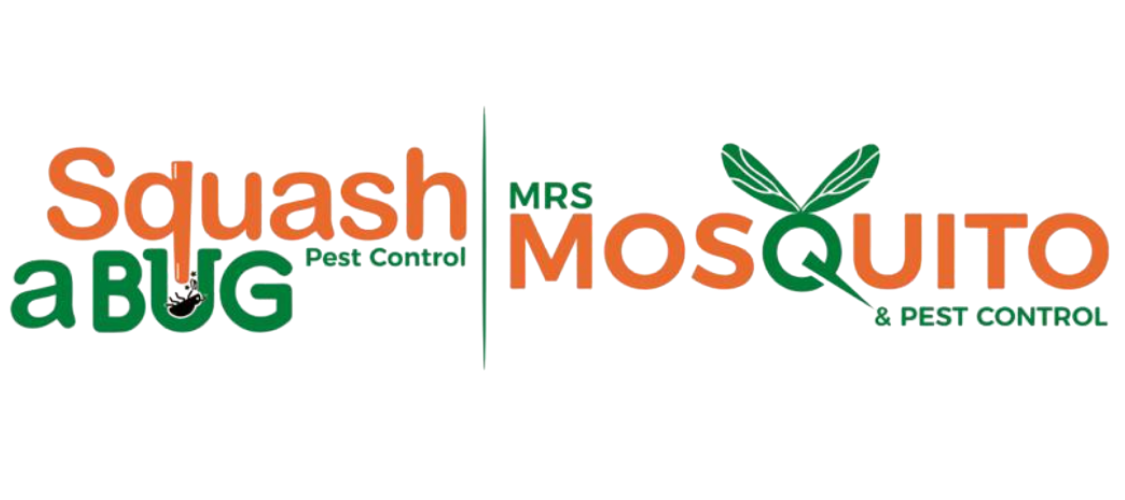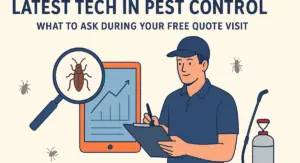Ants are some of the most common pests in homes across the Southeast. In Georgia and Florida, the climate creates perfect conditions for ant colonies to thrive all year. While many homeowners try to handle ants on their own, understanding what kind of ant you’re dealing with and how to treat them effectively can save you from recurring infestations and even structural damage.
This guide will help you recognize the most common ant species in Georgia and Florida, how to get rid of them, and when to contact professionals like Squash A Bug for safe, long-term pest solutions.
Why Are Ants So Common in the Southeast?
Georgia and Florida are known for their warm temperatures, high humidity, and consistent rainfall. These conditions support fast-growing ant colonies that are active nearly year-round.
The urban and suburban landscapes in cities like Atlanta, Orlando, and Tampa also offer plenty of nesting sites in mulch beds, walls, and under homes. Once ants find a source of food or water, they alert the rest of the colony, and that’s when infestations begin.
This is why homeowners often turn to pest control services in Florida and Georgia for regular inspections and custom treatment plans.
Common Ant Species in Georgia and Florida
Knowing what type of ants you’re dealing with helps determine the right treatment. Here are the most common species to watch out for:
Argentine Ants
- Small (2.2–2.8 mm), light to dark brown
- Travel in long trails
- Prefer moist areas like kitchens and bathrooms
- Do not sting but reproduce rapidly
Red Imported Fire Ants
- Reddish-brown with darker rear ends
- Aggressive and capable of painful stings
- Build mounds in lawns, sidewalks, or near driveways
- Dangerous for pets and children due to allergic reactions
Carpenter Ants
- Large ants (6–12 mm), black or reddish-black
- Nest in wood and can damage structures
- Leave behind frass (sawdust-like material)
- Most active at night
Pharaoh Ants
- Tiny, yellow or light brown
- Infest indoor spaces like hospitals, apartments, and restaurants
- Nest in wall voids, behind cabinets, and near electrical outlets
- Difficult to control without baiting
Signs of an Ant Infestation
You might not see a full colony, but these early warning signs suggest that ants are already inside your home:
- Trails of ants along baseboards or kitchen counters
- Dirt mounds in yards or sidewalks
- Sawdust piles near walls or windows
- Ants crawling out of electrical outlets or bathroom tiles
Spotting these signs early is key. If left untreated, ant populations grow quickly and spread throughout your home.
How to Prevent Ants in Your Home
Ant prevention starts with making your home less attractive to them. Small changes in daily habits can make a big difference.
Keep Things Clean
- Wipe counters and floors regularly
- Seal snacks and pet food in containers
- Clean up spills immediately
- Empty trash cans daily
Remove Moisture
- Fix leaking faucets and pipes
- Use fans or dehumidifiers in bathrooms
- Check under sinks for water damage
Seal Entry Points
- Use caulk to seal gaps in windows and baseboards
- Install weather stripping on doors
- Inspect utility lines and vents for cracks
Maintain Your Yard
- Trim vegetation touching your home
- Keep mulch and compost piles away from the foundation
- Remove dead branches and rotting wood
Do DIY Ant Treatments Work?
Yes, but only for small infestations. Some methods are effective for certain types of ants, while others are short-term fixes.
Sugar and Borax Baits
- Mix sugar and borax in shallow containers
- Place near ant trails
- Ants take bait back to the colony
- Best for Argentine and Pharaoh ants
Diatomaceous Earth
- Natural, pet-safe powder
- Sprinkle around windows, doorways, and under appliances
- Kills ants by drying out their bodies
Vinegar and Water Spray
- 50/50 vinegar and water mixture
- Disrupts scent trails temporarily
- Useful for maintenance, not colony elimination
If DIY treatments aren’t reducing ant activity after a week, it’s time to consider professional help.
When to Call a Professional
Ants can live inside walls, under foundations, and in electrical boxes. Once colonies are established, sprays and store-bought baits usually won’t solve the problem.
Call in professionals if:
- You see dirt mounds, wood damage, or nighttime activity
- DIY methods fail after repeated attempts
- You experience painful stings from fire ants
- Ants are appearing in multiple rooms or floors
Ant control services in Atlanta GA are equipped to locate and treat infestations safely and completely, using treatments suited to each species.
Benefits of Professional Ant Control
Working with professionals like Squash A Bug means getting more than just a temporary fix. They offer customized, long-term solutions.
What you get with expert help:
- Species identification and proper treatment plans
- Safe, pet-friendly indoor applications
- Outdoor perimeter protection
- Follow-up visits and prevention strategies
Many clients combine their treatment with ant and termite control to protect both living spaces and building structures.
Eco-Friendly and Family-Safe Treatments
If you have pets or children, safety matters. Many local pest control providers now offer eco-friendly pest solutions using botanical-based ingredients or reduced-risk formulas. These are just as effective as traditional chemicals without the harsh side effects.
Ask your local provider about treatment plans that prioritize green solutions.
Real Success Stories from Local Homeowners
In Miami, one homeowner struggled with Pharaoh ants in the kitchen. After trying vinegar and over-the-counter bait with no luck, she contacted a pest control services in Florida provider. A professional diagnosed the issue and used a gel bait placed deep inside cabinet voids. Within days, the activity dropped, and the colony was gone in two weeks.
Another homeowner in Atlanta noticed sawdust near his porch. Suspecting carpenter ants, he searched for ant control services in Atlanta GA and scheduled an inspection. Technicians confirmed his suspicion, treated the colony, and replaced the damaged wood. He now has quarterly visits to prevent future problems.
Long-Term Ant Prevention Tips
Once ants are gone, your goal should be keeping them out for good. Prevention is more affordable and less stressful than repeat infestations.
Build a long-term plan by:
- Scheduling quarterly inspections
- Keeping food sealed and surfaces clean
- Fixing leaks and blocking entry points
- Partnering with a trusted pest control service
Local providers like Squash A Bug can help maintain an ant-free home year-round with service plans tailored to your property.
Final Thoughts
Ants are among the most persistent pests in Georgia and Florida. Some sting, some damage wood, and some are just plain annoying. The key to handling ants is understanding the species, stopping them at the source, and using safe, effective treatment.
For fast, reliable solutions backed by local expertise, reach out to pest professionals who understand the region. Whether you’re dealing with fire ants in your yard or carpenter ants in your walls, a combination of smart prevention and affordable pest control services will keep your home protected.
Ready to take action? Contact Squash A Bug today to learn more about your options for termite and ant control or ask about eco-friendly pest solutions for your home and family.




